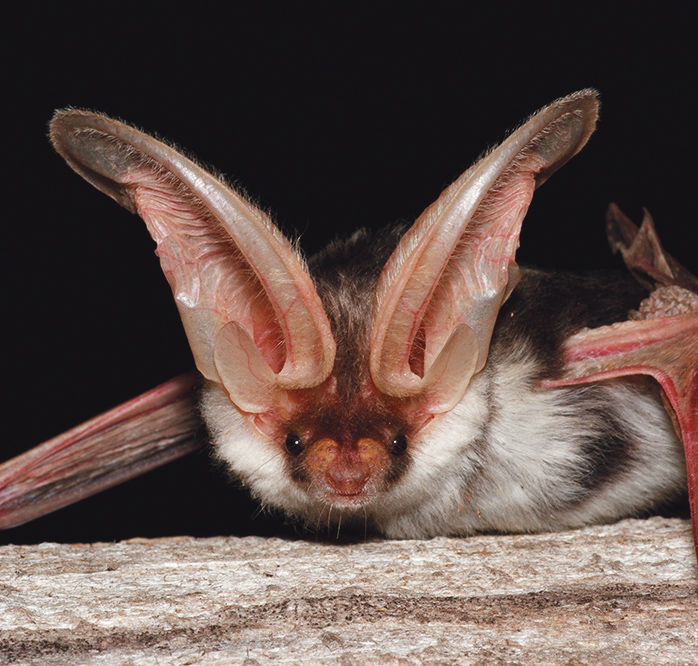

The State of the Bats
The report, published by Bat Conservation International (BCI) and our partners in the North American Bat Conservation Alliance (NABCA), defines in stark terms the perils bats now face. The study found 98% of bat species are losing habitat and 82% face risks from climate change. Bats are facing these devastating global threats while also facing one of the worst wildlife diseases in a century. White-nose Syndrome has killed nine out of every ten little brown bats, northern long-eared bats, and tricolored bats, and the destruction continues.
That’s why BCI, our partners, and our supporters are springing into action. BCI is implementing the most wide-ranging field solutions ever tested to save bats from white-nose syndrome, utilizing cutting-edge approaches like artificial prey patches and customized microclimates in caves and mines to help bats survive.

Saving bats from the risks of possible extinction counts on people like BCI’s dedicated team and relies on publishing science-grounded documents like the North American State of the Bats Report. Then it’s up to all of us.
More than ever, the survival of bats depends on people planting gardens with bats in mind and building bat boxes in their backyards, along with people working on volunteer projects with local wildlife agencies. It relies on people who are consciously reducing their energy use and carbon footprint and, most importantly, people staying informed and advocating for bat conservation.
BCI encourages you to read the State of the Bats Report and consider whether there are actions you can take to help. We welcome your engagement in carrying the message to your friends, family, neighbors, and congressional representatives. Bats are critically important for the health of our planet—and they’re in dire need of support now.
Mike Daulton
BCI Executive Director